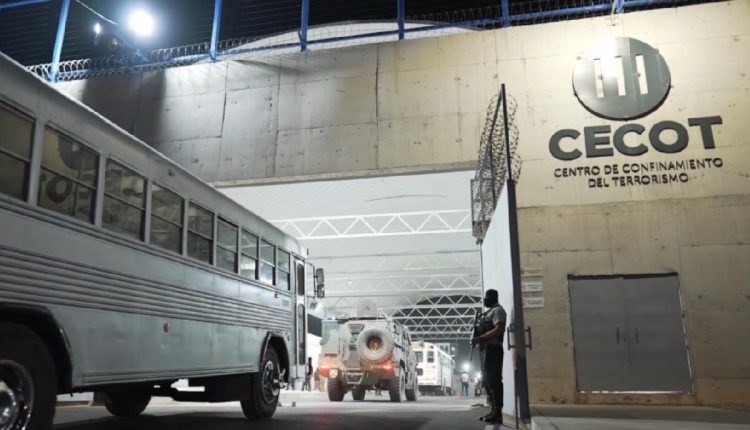The Rise of a Mega-Prison
In the heart of El Salvador lies a prison unlike any the world has seen — the Terrorism Confinement Center, or CECOT. Opened in early 2023 by President Nayib Bukele, this massive structure was designed to house up to 40,000 inmates, most of whom are suspected gang members arrested during the country’s intense anti-crime crackdown.
But with its rise came international headlines, concerns over human rights, and a new debate: Can mass incarceration bring lasting peace, or does it risk crossing ethical lines?
The Purpose: War on Gangs
For decades, El Salvador has struggled with violent gangs like MS-13 and Barrio 18, which turned parts of the country into dangerous zones controlled by criminal networks. In response, President Bukele launched a sweeping anti-gang initiative in 2022 that led to over 75,000 arrests in less than two years.
CECOT became the physical symbol of that war — a place designed not just to hold gang members, but to crush their power altogether.
“They’re not going to get out of here,” Bukele famously said during its inauguration.
“This will be their new home, where they will live for decades.”
A Fortress of Iron and Concrete
Located in Tecoluca, San Vicente, CECOT is built on a sprawling 23-hectare site surrounded by another 140 hectares of government-owned land. It’s a fortress — brutal in appearance, extreme in purpose.
Key Features:
-
Eight cell blocks with bunk beds stacked tightly together
-
24/7 CCTV surveillance
-
Continuous artificial lighting
-
Concrete walls, heavy steel doors, and multiple checkpoints
-
Maximum-security fencing and guard towers
-
No mattress, no recreation, and no sunlight access
The conditions are intentionally harsh. Inmates are often held in isolation, stripped of any connection to the outside world — no phone calls, no lawyer visits, no family interaction.
Life Inside CECOT: A Harsh Reality
CECOT is not a correctional facility in the traditional sense. It is punitive by design.
Prisoners are:
-
Shaved bald and kept shirtless
-
Forced to squat in chains during transfers
-
Often denied basic medical care
-
Provided only the minimum food and water needed to survive
There is no rehabilitation program, no work assignments, and no contact with the outside world. Authorities claim this is necessary to prevent gang members from organizing or retaliating from within the prison.
International Backlash and Human Rights Concerns
While the government claims success in reducing crime, human rights organizations have raised alarms. Human Rights Watch, Amnesty International, and others have documented:
-
Arbitrary detentions of innocent civilians
-
Lack of legal representation for detainees
-
Enforced disappearances
-
Deaths in custody due to neglect or abuse
Moreover, reports indicate that thousands of those arrested have never been officially charged or tried in court. The state of emergency declared during the crackdown has suspended constitutional protections for over two years.
Critics argue that while gangs may be weakened, justice is being replaced with authoritarianism.
The US Connection: Deportations Stir Controversy
In a fresh twist, the United States has begun deporting alleged gang members — some of whom entered the U.S. legally — back to El Salvador, many landing directly in CECOT.
This move, under the Alien Enemies Act, has sparked legal and moral debates. Deportees have claimed they are being sent into brutal conditions without due process, drawing criticism from international law experts.
Public Opinion: Divided but Shifting
Despite the criticism, President Bukele’s approval ratings remain incredibly high inside El Salvador — in part due to the dramatic drop in homicide rates, which some say have reached record lows.
Many Salvadorans support CECOT and the tough-on-crime approach, citing a newfound sense of safety in areas once dominated by gangs. However, others worry about the long-term consequences of such authoritarian methods.
Conclusion: A Dystopian Miracle or a Dangerous Precedent?
CECOT is a paradox. It’s both a security marvel and a human rights disaster, depending on who you ask. It symbolizes a government willing to do anything to break the back of organized crime — even if it means sacrificing the rule of law and individual rights.
As El Salvador walks the thin line between safety and tyranny, the world watches closely. The question remains:
Can a nation imprison its way to peace — and at what cost?


Comments are closed.